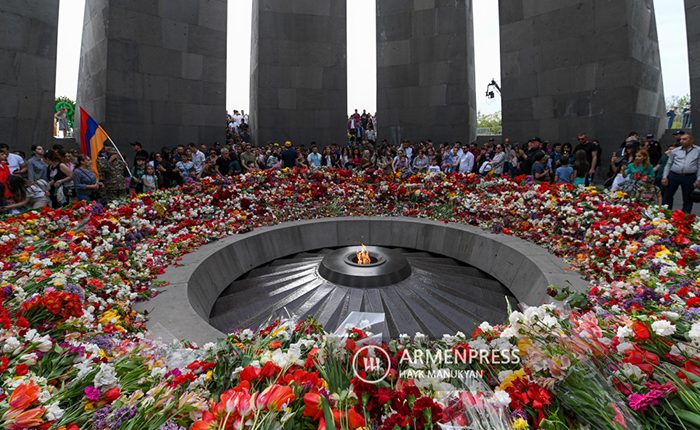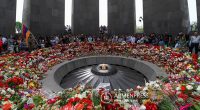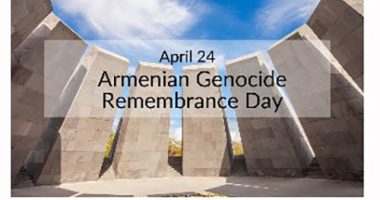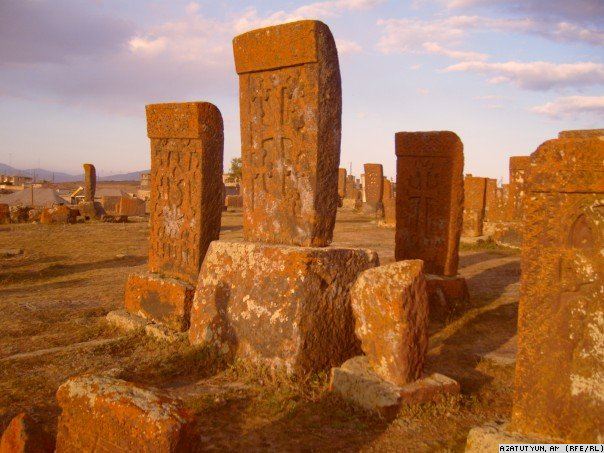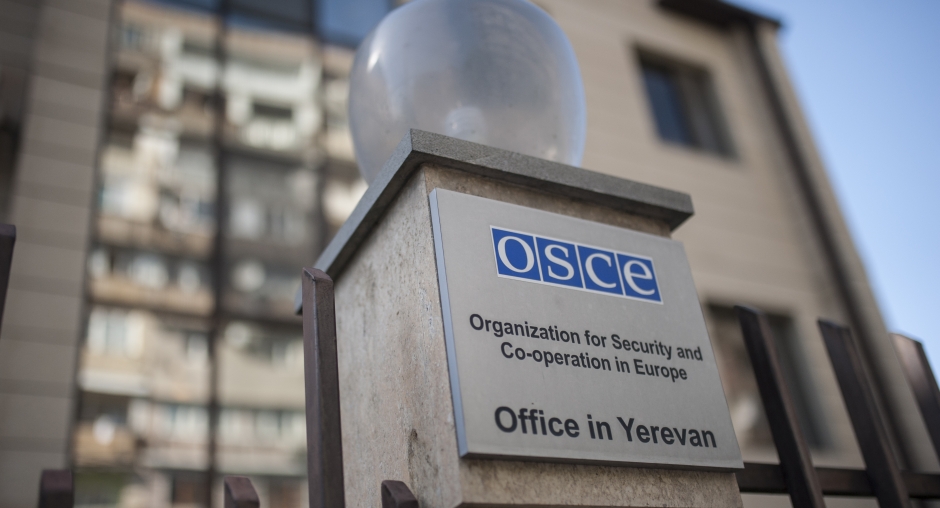One hundred and seven years have passed since the dark times where the mass deportation and genocide of the Armenian people, deliberately organized by the Young Turks, took the lives of about two million Armenians and uprooted them from their centuries-old ancestral homeland. The Armenian people lived through the most horrible period in its history. Ottoman Turkey planned and implemented its anti-Armenian policy, hoping to resolve the Armenian question and suppress the aspirations of the Armenian people for freedom and independence.
For more than a century, our people have yet to find their inner peace and stability and continue to live under the heavy burden of the memories of the historical reality, passing on from generation to generation the commitment to remain faithful to the will of our martyrs and to demand not only recognition, but justice and reparations.
As every year, our people gather in the squares of different capitals to commemorate the immortal memory of our consecrated Martyrs and to protest against the Turkish state’s policy of denial, even though almost all influential countries in the world have recognized the Armenian Genocide as the first state-sponsored massacres of the 20th century.
A year ago today, thanks to years of effort and political battles by Armenian-Americans, the United States recognized the Armenian Genocide at the presidential level. Despite threats from the Turkish government, President Joe Biden joined the two Houses of Congress that had almost unanimously recognized the Armenian Genocide.
Initially, successive Turkish governments adopted a policy of ignoring and remaining silent, in the hopes of making the subject of the Armenian Genocide some disappear and go forgotten. At present, they are pursuing a policy of denial, but that too is failing. Many countries come to join, to call a spade a spade, and to reaffirm their recognition of the historical facts. Turkish intellectuals are also acknowledging and expressing their sorrow that their ancestors committed such crimes against a segment of the population living in Turkey.
Remaining unpunished, the Turkish state is creating a prelude to other genocides that are currently being committed in different parts of the world. By raising their voice, Armenians not only defend their rights, but also draw the world’s attention to the suffering of all disenfranchised minorities.
To this day, Turkey continues its hostile attitude towards the Armenian people. The functional participation of the Turkish army in the last Artsakh war was a vivid example of that. It continues to close its border with Armenia and refuses to establish diplomatic relations with Yerevan. Recent talks to resolve these issues remain stalled, and Armenians remain skeptical of the sincerity and willingness of the Turkish side.
Turkey’s far-reaching goal remains the creation of a Pan-Turkish world, to unite all the Turkish-speaking people of the region, but that objective is hampered by small Armenia. Unfortunately, Russia and the West, which should also be concerned about Turkish expansionist aspirations, fail to provide the necessary support to the Armenians.
The world today is undergoing changes and a new world order is emerging. In light of these transformations, Armenia is compelled to pursue a very cautious policy to keep the country away from new threats. Internal solidarity is needed to withstand the current crisis. April 24 is the best occasion for reflection and awareness and we must stay true to the message of our martyrs, which dictates and obliges us to put our differences aside and be unified to protect our homeland.
Today, we honor the memory of Armenian martyrs and renew our commitment to pursue justice for them all.
“MASSIS”

